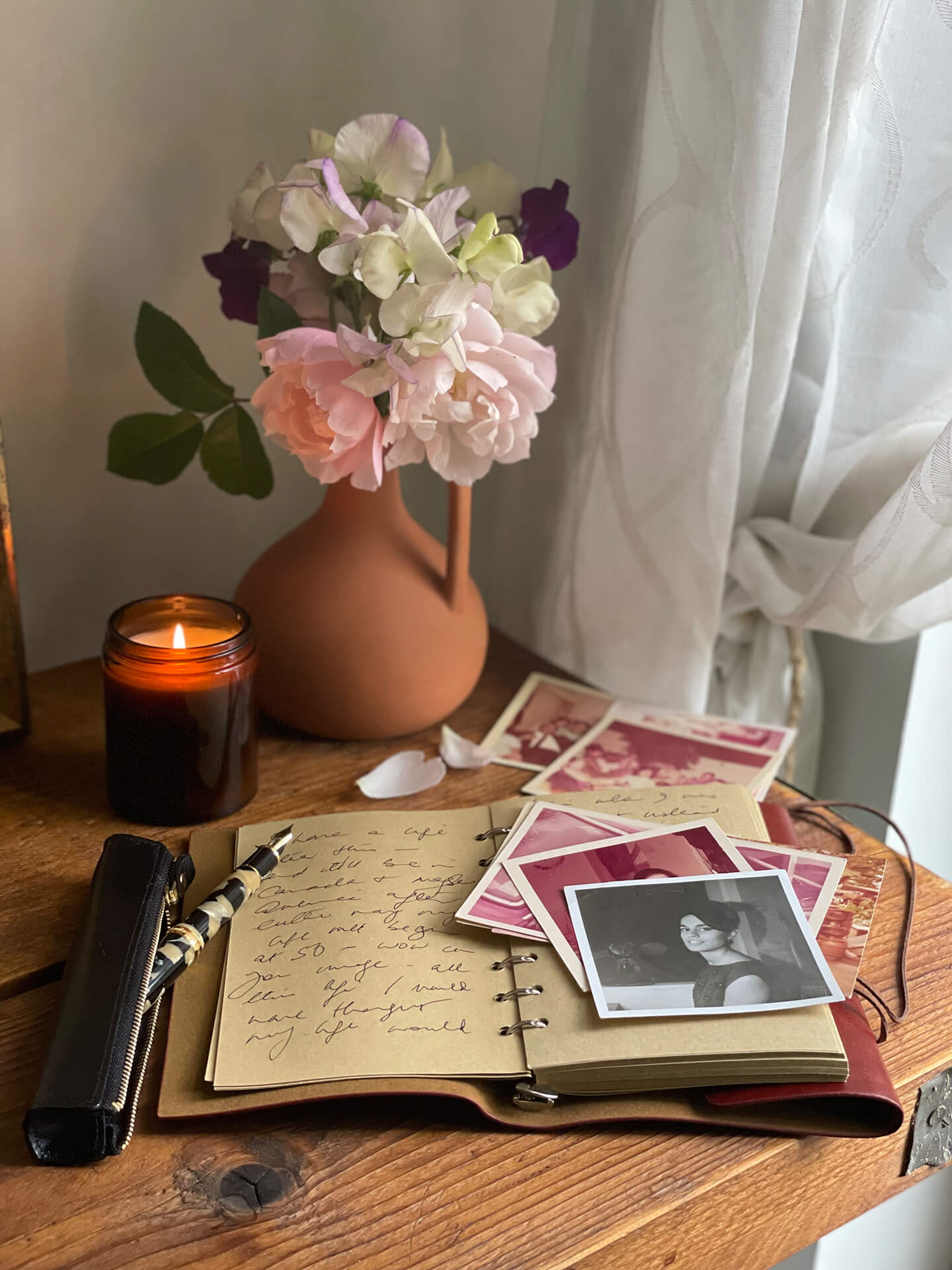Have you ever dreamed of calling yourself a writer? Perhaps writing a book or even just finding time to write for yourself? But that no matter the promises, somehow you never get around to doing it and when you do try, you find your words don’t sound like you? If finding your writer’s voice is something you’d love to begin working on, do read on…
 There is a dream for many of us – to leave a legacy by immortalising our stories in a book; whether it’s a novel or a memoir, or merely just written stories for yourself. But why is it that so many people merely dream to write but never actually get around to doing it? It’s not always laziness or the lack of time that stops many people, it’s fear – the fear of failing, of not being good enough. But one of the greatest fears that aspiring writers face is of not sounding like themselves – not having that coveted ‘writer’s voice’.
There is a dream for many of us – to leave a legacy by immortalising our stories in a book; whether it’s a novel or a memoir, or merely just written stories for yourself. But why is it that so many people merely dream to write but never actually get around to doing it? It’s not always laziness or the lack of time that stops many people, it’s fear – the fear of failing, of not being good enough. But one of the greatest fears that aspiring writers face is of not sounding like themselves – not having that coveted ‘writer’s voice’.
So, what is a writer’s voice? It’s the writer’s personality shining through on the page, a distinct flair, style, almost like they are talking to you – I’m not referring to the voice of fictitious characters but instead about finding your own true voice that defines your unique writing style. The truth is that this elusive phrase means many things in the literary world, from writing from an authentic place, a technical writing skill to sounding like yourself on a page. So why is it that when you write for the first time and many times after, your words don’t always sound like the voice inside your head – why does it sound so forced, almost clinical?
As humans we are so guarded and in many ways writing makes us vulnerable and that fear of exposure can arrest the desire to be totally ourselves sometimes. Other times it’s the risk of not sounding ‘perfect’ or being found out as a fraud – dreaded imposter syndrome – and the need for perfectionism haunts the best of writers out there.
The truth is that I was that person once and even now, after having been published thrice, I still battle with these demons sometimes. It was much worse when I was working as a lawyer in London with only a dream to be a professional writer. I was unsure of how to tell my stories, and I fought battles with myself about how terrible my words read on the page. Many times, I thought it might be best to give up as a writer. It was sheer stubbornness that kept me going and eventually through consistent journaling, writing and allowing myself to become comfortable with my inner voice on a page; I began to find my writer’s voice.
What I did realise was that writing effortlessly isn’t something that comes naturally all the time and writing with your true inner voice too is something that comes with practice and letting go of many inner demons. It wasn’t until I drilled down deep into my impression of myself that I began to slowly find my way out of self-taught negativity that impaired me from writing from an authentic place.
Through my journey to unearthing my writer’s voice (that I am still working on developing further) here are some ways I’d like to share that can help you nurture your writer’s voice and bring it onto the page:
 1. Create a ritual and turn up
1. Create a ritual and turn up
Make space for your writing, consistently. Don’t let it be something that gets shelved for ‘when you’re free.’ Make time and dedicate a space that is yours, a place where you can escape – pick a pen and journal that inspires you, light some candles or burn some incense or take a walk and sit in a park and write. I find that the more ritualistic you make the time for your writing, the more you begin to crave it. Be it ten minutes a day or ten minutes each week; don’t worry about how much time you can make – just show up and make it count. My ritual is that I usually pick flowers from my garden, place them next to my journal, light candles and keep photos around me that inspire me to write. I wake up early and I write early, it’s my ‘me time.’
2. Pick a consistent style in your writing and be only you
Begin by embracing your natural writing style, whether it is emotional, comedic or poetic. Let that be your voice, let it shine. It’s what makes your way of viewing the world special and you should nurture it and allow it to fall out of your mind and onto the page. Stay consistent to this voice, it might change if you begin writing characters but you can bring your experience and feelings into characters hence giving them a unique way of seeing the world – your way. Don’t try to copy another person’s writing style no matter how much you might admire it because it will once again make you hide your true voice. Sometimes I stop reading other books when I’m working on a writing project because I find I can get unintentionally influenced by other voices and styles.
3. Be honest with how you want to communicate with the world
Whether you’re writing for yourself or ultimately books to share with the world, begin to write the way you honestly want to communicate with the world. Don’t shy away from your view of the world through your perceptions and experiences. The unique way you look at the world has a place. So, when you’re practising to become more comfortable with your inner voice and writing practice, do practise this too – being honest with yourself about how the world sees your world.
4. Don’t discount your own voice, instead find freedom through it
Many writers discount their true inner voice and think that it’s not as strong as other writer’s voices and hence irrelevant. This is very common and it is sometimes the single hurdle that stops people from writing. It’s when you accept that your own voice is the one readers want to hear and that it’s what people love – that authentic inner experience that is truly yours for the telling. It’s inside you, don’t push it aside, the chances are that if it doesn’t sound special to you, it’s exactly the special voice others want to hear. When you embrace that inner voice as being unique and worth it, it is when you’ll find freedom in your writing as well as comfort with what your real voice is as a writer.
5. Develop an understanding of who you are by journaling
Even if you’re writing stories for yourself or for books, make time to journal regularly. The truth is that the more you begin to understand who you are by writing without an agenda regularly, the more comfortable you’ll become about sharing that inner voice with the world. Make time for morning journaling or evening journaling (or both), just write a little or a lot about whatever comes to mind. This should be a string of conscious writing without purpose or plan, you can use writing prompts sometimes or not, that’s up to you. No one needs to read this, write the way you’re thinking and the way you’re feeling – moan, complain and vent or share your dreams. It really doesn’t matter – just be you and have a conversation with yourself on the page. In my experience it’s when I let go of trying to be someone else and embrace the imperfect, complex and confused person I am, is when my true voice emerges on the page.
Remember, we all have a story to tell and there is every reason others want to hear it – whether it’s to find companionship, understand human suffering or merely find resonation in emotion. As living begins we crave stories and the more diverse, beautiful voices are out there, the better. Don’t let yours be shrouded by the fear of imperfection and lack of confidence. Just be the wonderfully complex person you are inside, on a page.
___________________________
Budding writers, would you like to learn more?
 If working on unearthing your writer’s voice is something you’d love to learn more about, Sumayya is launching a 21 day email and video course, Wordsmith, that will help you do just that, in your own time in early 2023. Follow her on instagram @sumayyausmani or visit her website www.sumayyausmani.com where you can join her email newsletter and hear her bi-monthly podcast A Savoured Life.
If working on unearthing your writer’s voice is something you’d love to learn more about, Sumayya is launching a 21 day email and video course, Wordsmith, that will help you do just that, in your own time in early 2023. Follow her on instagram @sumayyausmani or visit her website www.sumayyausmani.com where you can join her email newsletter and hear her bi-monthly podcast A Savoured Life.
 91 Magazine is also hosting a two part online workshop covering all aspects of publishing your own lifestyle book – from working with a mainstream book publisher to self-publishing. Find out more and sign up here.
91 Magazine is also hosting a two part online workshop covering all aspects of publishing your own lifestyle book – from working with a mainstream book publisher to self-publishing. Find out more and sign up here.











